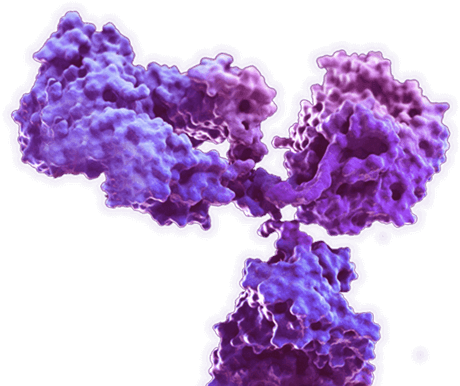Mouse Anti-D. melanogaster Mio Antibody (CBMOAB-23952FYA)
Cat: CBMOAB-23952FYA
Certificate of Analysis Lookup
To download a Certificate of Analysis, please enter a lot number in the search box below. Note: Certificate of Analysis not available for kit components.
Lot Number
To download a Certificate of Analysis, please enter a lot number in the search box below. Note: Certificate of Analysis not available for kit components.
Lot Number
| Size: | |
| Conjugate: | |
| Inquiry |
- Specifications
- Application Information
- Target
Specifications
| Host species | Mouse (Mus musculus) |
| Species Reactivity | Fruit fly (Drosophila melanogaster) |
| Clone | MO23952FYA |
| Specificity | This antibody binds to fruit fly Mio. |
| Format | Liquid or Lyophilized |
| Storage | Store at 4°C: short-term (1-2weeks) Store at -20°C: long-term and future use |
| Purity | > 90% was determined by SDS-PAGE |
| Purification | Purified with Protein A or G affinity chromatography |
| Cellular Localization | Other locations; Nucleus; Cytosol |
Application Information
| Application | WB, ELISA |
| Application Notes | ELISA: 1:1000-1:3000 Other applications are to be developed. The optimal dilution should be determined by the end user. |
Target
| Introduction | An essential component of the GATOR subcomplex GATOR2 which functions as an activator of the amino acid-sensing branch of the TORC1 signaling pathway (PubMed:27166823, PubMed:23723238). The two GATOR subcomplexes, GATOR1 and GATOR2, regulate the TORC1 pathway in order to mediate metabolic homeostasis, female gametogenesis and the response to amino acid limitation and complete starvation (PubMed:27166823, PubMed:23723238). GATOR2 activates the TORC1 signaling pathway through the inhibition of the GATOR1 subcomplex, controlling the switch to cell proliferation and growth under nutrient replete conditions and during female oocyte development (PubMed:21521741, PubMed:25512509, PubMed:14973288, PubMed:23723238). This component is required for activating TORC1 specifically in germline cells to promote cell growth and maintain the oocyte fate (PubMed:27166823, PubMed:21521741, PubMed:23723238). GATOR1 and GATOR2 act at different stages of oogenesis to regulate TORC1 in order to control meiotic entry and promote oocyte growth and development (PubMed:21521741, PubMed:25512509, PubMed:14973288, PubMed:23723238). After exactly four mitotic cyst divisions, the GATOR1 complex members (Iml1, Nprl2 and Nprl3) down-regulate TORC1 to slow cellular metabolism and promote the mitotic/meiotic transition (PubMed:25512509). At later stages of oogenesis, the mio and Nup44A components of the GATOR2 complex inhibit GATOR1 and thus activate TORC1 to promote meiotic progression, and drive oocyte growth and development (PubMed:21521741, PubMed:25512509). In addition to its role in the regulation of the TORC1 complex, functions independently of TORC1 to prevent the inappropriate accumulation of autolysosomes in germline tissues (PubMed:27166823). (From uniprot, under CC BY 4.0) |
| Product Overview | Mouse Anti-D. melanogaster Mio Antibody is a mouse antibody against Mio. It can be used for Mio detection in Western Blot, Enzyme-Linked Immunosorbent Assay. |
| Alternative Names | Mlx interactor alpha; Mlx interactor, isoform A; Mlx interactor, isoform B; Mlx interactor, isoform F; Mlx interactor, isoform G; Mlx interactor, isoform H; Mlx interactor, isoform I; Mlx interactor, isoform K; Mlx interactor, isoform L; Mlx interactor, i; Mio |
| UniProt ID | Q9VID4 |
| Protein Refseq | The length of the protein is 1119 amino acids long. The sequence is show below: MMLNKHEGYQRTSQMFPHQQHQLPQLHQQPYLQQSLCQNFQQLQYETGVGASASGSAEATADLLKAERESIHSGQFMVSHFEAEEAQDDLEDDGEVKMLDPEDPGLGKPGEPTNTCRDVQLYVPQTVAHFSAMDQEGDESSMSMVTSHLEIETSLTKLFKCMNLAYSQKLTSPKWNHFKGVRLRWKDKIRLNNVIWRCWHMQFIQKRRTPVCQFASPLDVDIHSNPQTVVLEGKYWKRHSAVIKAEYRKWRRNYRSKATGCLTYDSKSELDFLEWSPLNDRNLMPDDWTTDTLFSAINVPFPFPDSREIARGAGIADFIQPSLGPLQPNLDDIDISFSDLIPTTRLPPVPEEGTDAEMLKNDEYCLSAIVGAPHTLYCNDSIMDVVNSSNNGAVNVDASMLELNTPINNVSYGEVEQRFSVARQVQQSNNDSQLLGDSGSMSGRIHGGKHFGPASANDNNTNRCVINGRVAKSTQRPFRREPHNYDKAQPTMHQTNLYQQMLAEQQKNQQQQHVVVSSFQASQQQQLAQQQPFSAQATNAFNNQSFISSYADNYQHQQQLNVKVEPLHADVLSLLNDNAYNSIGYKPYPQFKKSASTGTFLNVPRQTQQQQSYLQQEPPQMQQSLPVGMGNQQILQLTRQQQVNNTQQQQHQSTVASLLQQQHQQQNHQQQQLQTAVSSATWVSPNTILPKEIYRSNSLPLNVSLNKLPDGRQLHHEQPFAVPKYHSKSKSRVRSNSMHQQHTSVVSAAGAGSSSLGAHSCSNLLVTQQMQQATSDPMLNSTLAQLLTSNSRLQTAVANSSSSNSPSVSAIATTNSNSNAPPVHYANVTSPLSVPVPTHQHSPKKSASLPMAVNSALHSPPLGSKIHGIGLATANVGSNSLSLSPESTFHESQDSPLSPTTSLKFQPRDTQRRAGHIHAEQKRRYNIKNGFDTLHALIPQLQLNPNAKLSKAAMLQKGADHIKQLRQERNVLKDKIEALRMERDELNNSLTHLHSILPANGAPVTRQGTEHVRQLYDIYVRYNTMNDWKFWILGLILEPLLASYTSTVSSASLDELRRTAFLWVDQHCSLIDLRPAVTNKLKYLSMHTDIVSEPPSTLQEEVAKALQNSSGQHPNLHGP. |
For Research Use Only | Not For Clinical Use.
Online Inquiry


